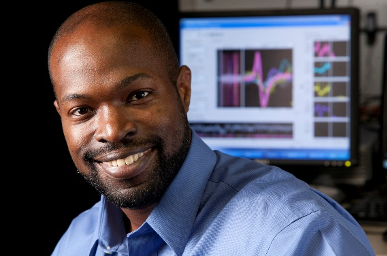
Mapping emotions: Discovering structure in mesoscale electrical brain recordings
Description
Brain-wide fluctuations in local field potential oscillations reflect emergent network-level signals that mediate behavior. Cracking the code whereby these oscillations coordinate in time and space (spatiotemporal dynamics) to represent complex behaviors would provide fundamental insights into how the brain signals emotional pathology. Using machine learning, we discover a spatiotemporal dynamic network that predicts the emergence of major depressive disorder (MDD)-related behavioral dysfunction in mice subjected to chronic social defeat stress. Activity patterns in this network originate in prefrontal cortex and ventral striatum, relay through amygdala and ventral tegmental area, and converge in ventral hippocampus. This network is increased by acute threat, and it is also enhanced in three independent models of MDD vulnerability. Finally, we demonstrate that this vulnerability network is biologically distinct from the networks that encode dysfunction after stress. Thus, these findings reveal a convergent mechanism through which MDD vulnerability is mediated in the brain.
Speaker Bio
Kafui Dzirasa completed a PhD in Neurobiology at Duke University. His research interests focus on understanding how changes in the brain produce neurological and mental illness, and his graduate work has led to several distinctions including: the Somjen Award for Most Outstanding Dissertation Thesis, the Ruth K. Broad Biomedical Research Fellowship, the UNCF·Merck Graduate Science Research Fellowship, and the Wakeman Fellowship. Kafui obtained an MD from the Duke University School of Medicine in 2009, and he completed residency training in General Psychiatry in 2016.
Kafui received the Charles Johnson Leadership Award in 2007, and he was recognized as one of Ebony magazine’s 30 Young Leaders of the Future in February 2008. He has also been awarded the International Mental Health Research Organization Rising Star Award, the Sydney Baer Prize for Schizophrenia Research, and his laboratory was featured on CBS 60 Minutes in 2011. In 2016, he was awarded the inaugural Duke Medical Alumni Emerging Leader Award and the Presidential Early Career Award for Scientists and Engineers: The Nation’s highest award for scientists and engineers in the early stages of their independent research careers. In 2017, he was recognized as 40 under 40 in Health by the National Minority Quality Forum, and the Engineering Alumni of the Year from UMBC. He was induced into the American Society for Clinical Investigation in 2019.
Kafui has served as an Associate Scientific Advisor for the journal Science Translational Medicine, a member of the Congressional-mandated Next Generation Research Initiative, and on the NIH Director’s guiding committee for the BRAIN Initiative. He currently serves on the Editorial Advisory Board for TEDMED.
Kafui is an Associate Professor at Duke University with appointments in the Departments of Psychiatry and Behavioral Sciences, Neurobiology, Biomedical Engineering, and Neurosurgery. His ultimate goal is to combine his research, medical training, and community experience to improve outcomes for diverse communities suffering from Neurological and Psychiatric illness.

